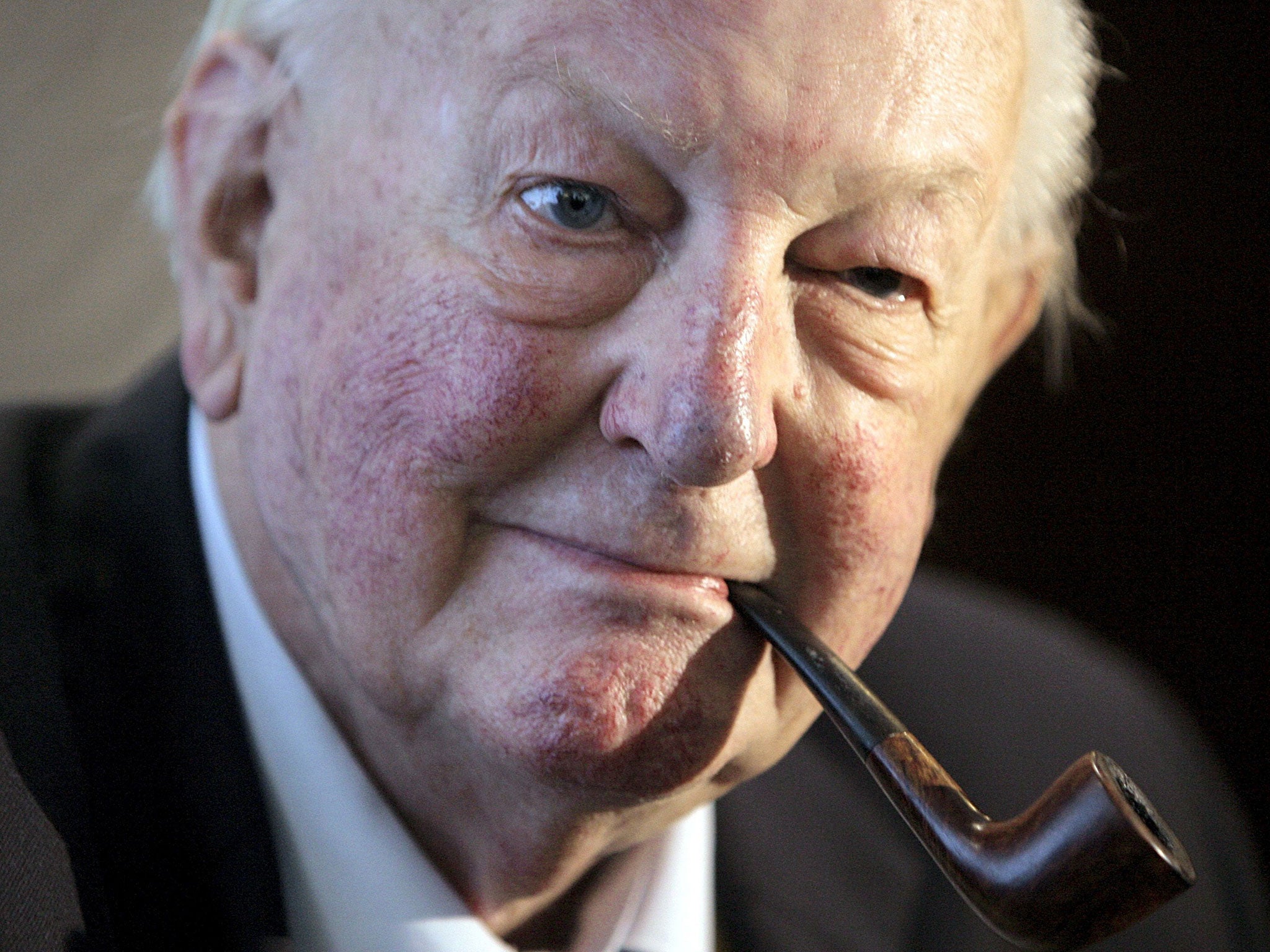Porterhouse Blue author Tom Sharpe dies aged 85
John Walsh marks the demise of the writer who found comic gold in the world of Oxbridge

Tom Sharpe, who died today at the age of 85, was a comic writer in the great English tradition, stretching back through PG Wodehouse and Waugh to Thackeray, Dickens, Smollett and Fielding. He combined a prose style of breezy elegance with the instincts of a farceur. But behind his bawdy scene-making and love of mayhem, he was a moralist with a keen sense of English decency.
Sharpe died in the coastal town of Llafranc in north-eastern Spain from complications arising from diabetes. His wife, Nancy Looper Sharpe, said he had recently suffered a stroke and had lost the use of his legs.
His first two books were satires about South Africa’s apartheid regime. Sharpe travelled to South Africa in 1951 after leaving Cambridge, to work as a teacher and photographer. He wrote anti- apartheid plays which (though produced only in England) came to the attention of the police and he was deported back to Britain in 1961. The experience left him with a perfect subject. He wrote Riotous Assembly in just three weeks, a comic extravaganza involving a racist Zululand police chief, an eccentric English spinster and her black cook and lover whom she “obliterates” with a quadruple-barrelled elephant gun. The police chief’s efforts to keep a lid on the scandal become increasing farcical. The book was published in 1971. A sequel, Indecent Exposure, following the same incompetent policemen, came out two years later.
Blott on the Landscape showed that he could adapt his satirical eye to subjects back home. It featured a Wodehousian plot – the proposed building of a motorway through a gorge in rural England and the stately home of an MP, Sir Giles Lynchwood – but with very uncosy complications. The MP covets the compensation money, and his wife’s main ally in the fight to save her home is her gardener, a former German POW. Sexual fetishism, arson and death made for a very un-Wodehousian package.
The Sharpe style was established. His books became merciless sallies into the British establishment, with shocking, destructive, sometimes explosive consequences. The Great Pursuit lampooned the supposedly genteel world of British publishing, in which a snuff-taking literary agent called Frensic takes on a book of breathtaking immorality and signs up a high-minded innocent to pretend to have written it, following a $2m deal with a US publisher. The book was funny but was hindered by the fact that Sharpe’s idea of a shocking and disgusting book – in which an 80-year-old woman has an affair with a 17-year-old youth – didn’t seem too bad (it was the plot of the film Harold and Maude.)
Porterhouse Blue took a four-barrelled elephant gun to the world of Oxbridge, and the compromises made by the college system in balancing tradition and modernity. The new master of Porterhouse College is a new broom, keen on introducing women students, canteen food and contraceptive machines. Ranged against him are the college servants, led by Skullion and the academic Fellows.
A certain narrative heartlessness became more evident in his later books, especially the Wilt novels. The original Wilt was a brilliant black comedy about a hacked-off college lecturer who plots to murder his henpecking wife and comes to the attention of a suspicious police inspector. Later books tended to punctuate the plots with violent eruptions and sudden death, with diminishing returns of hilarity.
Sharpe can be accused of dealing in caricature and vulgarity, but his readers don’t care; his fury at racists, thoughtless modernisers, greedy opportunists and smug politicians is translated, in his novels, into comic gold. They hark back, wrote the critic Adrian Mourby, “to a golden age of academic dottiness of a kind that has all but disappeared.”
Join our commenting forum
Join thought-provoking conversations, follow other Independent readers and see their replies
Comments